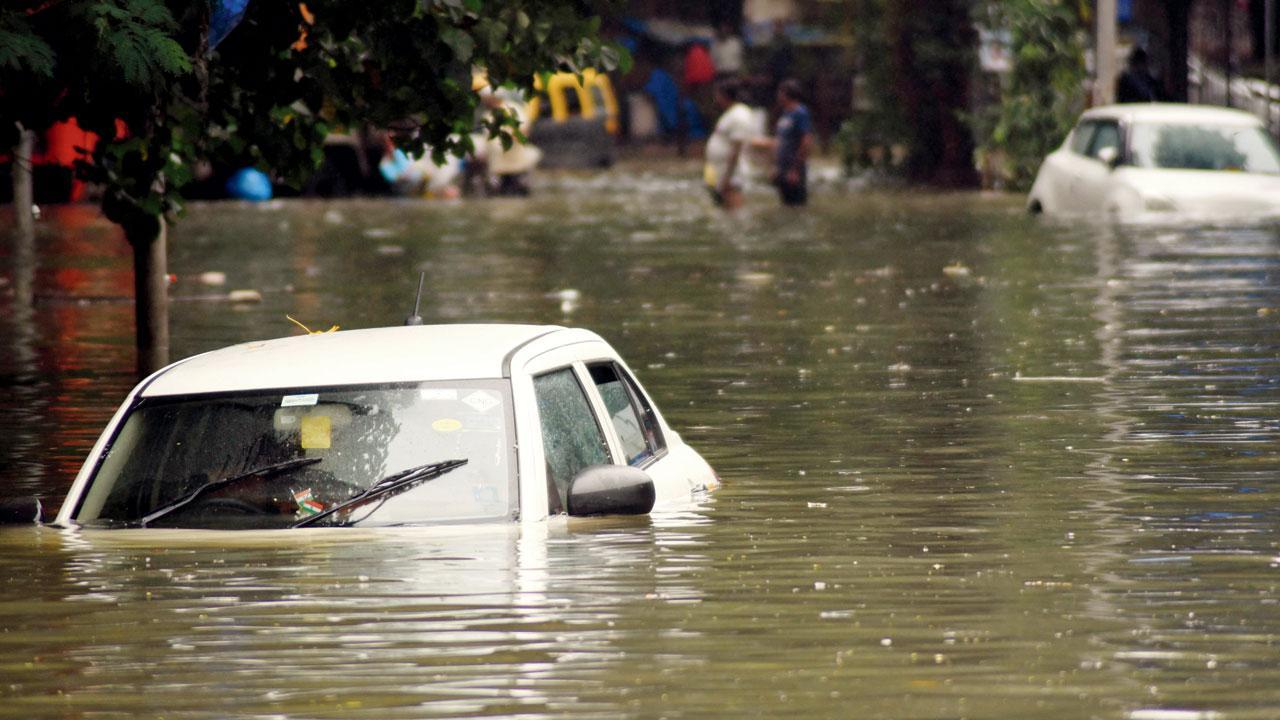It will focus on solid waste management, urban greening, flood and water management, efficient energy building, clean air and sustainable mobility

A flooded King’s Circle on September 23, 2020. Flooding is a major concern in Mumbai. File Pic/Sameer Markande
To prepare an action plan to tackle climate change, the BMC launched a website on Friday seeking ideas and suggestions from citizens. The initiative—Mumbai Climate Action Plan—is part of a global effort under the banner C40 Cities Network.
ADVERTISEMENT
The civic body has collaborated with World Resources Institute (WRI) India to draft the action plan. State environment minister Aaditya Thackeray will also be a part of the team that will prepare the draft.
With Mumbai among the most vulnerable cities to the effects of climate change, the draft will come up with a comprehensive strategy by adopting inclusive and robust mitigation and adaptation methods, said officials. The website — https://mcap.mcgm.gov.in — will accept public responses till September 20.
The plan will focus on sustainable solid waste management, urban greening and biodiversity, flood and water resources management, efficient energy building, clean air quality and sustainable mobility. These six action paths are expected to be ready by November, in the run-up to the United Nations Climate Change Conference (COP26).
Thackeray said, “Now is the right time to take action and if it is delayed, Mumbai will be unsuitable for the next decade. Bringing climate change action into the mainstream while implementing Mumbai's development blueprint will enable effective reduction in greenhouse gas emissions by enabling the conservation of natural resources in Mumbai, enhancing the capacity of sensitive groups and enriching the city.”
Officials said the BMC has already started planning projects keeping in view the challenges brought in by climate change and the action plan will give their efforts the much-needed thrust and direction.
Floods due to excessive rainfall and rising temperatures are two major challenges Mumbai faces. According to the Indian Meteorological Department, there has been a steady rise in the city’s temperature over the last 50 years. Citing erratic night temperatures and a shrinking winter season, they stressed the need for the action plan.
Data collected by government agencies and private companies between 2010 and 2020 shows that the city released about 34.3 million tons of carbon dioxide. As per 2019 statistics, the per capita share of carbon dioxide in the metropolis is nearly 2.67 tonnes, much higher than India’s average per capita share of 1.91 tonnes.
The greenhouse gas emissions from the energy sector are the highest at 71 per cent. The share of the transport sector is 24 per cent and solid waste management is 5 per cent. “Mumbai has the highest power consumption, 95 per cent of which is generated by thermal power plants, so the energy sector is the biggest emitter,” said Lubina Rangwala of WRI.
 Subscribe today by clicking the link and stay updated with the latest news!" Click here!
Subscribe today by clicking the link and stay updated with the latest news!" Click here!






